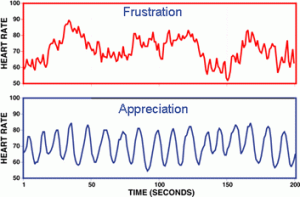One of the insidious effects of a chronic stress response is that we can become desensitized to it’s harmful influences. So it’s common that an individual may not subjectively feel the appropriate degree of the injurious effects of stress.
And because stress is so damaging to our health and well-being … it’s responsible for 85% of all illness … we most definitely don’t want to be inured to its presence. We want to be alerted to the fact that something is seriously amiss so that we’ll be motivated to take corrective action.
Fortunately, there are a number clinical exams and objective assessments that can be used to effectively measure the impact that the stress response is having on us.
It’s very empowering for most patients to learn the true stress related causes of their symptoms. Understanding why they’re ill (often due to stress and its myriad effects) and knowing that something can be done about it often triggers the beginning of an effective healing process.
In this article I’ll briefly cover the assessments that I use routinely in my office on the initial visit. A prior post focused on the nature of the stress response.
Stress Symptom Questionnaire
The single most effective assessment tool is a stress symptom questionnaire as part of a medical history. For example, when a patient reports the need for sunglasses because of their sensitivity to light that is suggestive of an imbalance of the adrenal hormone that controls the size of the pupil. Dizziness or lightheadedness upon standing is another indicator of adrenal fatigue that’s resulting from an adrenal hormone imbalance.
Questions like these point to neuroendocrine imbalances that are reflective of adrenal stress yet are too subtle to be picked up on more conventional lab tests. This point explains why patients suffering from adrenal fatigue are often given a clean bill of health when assessed with conventional blood work.
Salivary cortisol is gaining popularity for assessing adrenal stress. I’ve found the use of the questionnaire significantly more effective than salivary cortisol … and without cost to the patient.
Heart Rate Variability (HRV)
One of my favorite tools is a measurement of the pattern of the heartbeat called Heart Rate Variability. This test gives patients a real time glimpse into the state of their autonomic nervous system (ANS). The ANS is responsible in large part for the functioning of your organs and your overall health.
The test is a reliable indicator of the stress response as well as a real time reflection of adjustments made to the ANS through a change in how the patient uses their awareness and their breathing patterns. Patients who are confident about their newly acquired self-regulation skills are much more likely to practice frequently to insure more lasting positive changes in neuroendocrine function.
The graph below shows a stressed pattern replaced by a more balanced ANS pattern through a process of focused awareness and breathing technique.
Hair Mineral Tissue Analysis
Hair Mineral Tissue Analysis (HTMA) when done properly gives us information about the functional status of the body. HTMA can be helpful in assessing the current state of the stress response, adrenal gland reserve, thyroid function, and carbohydrate handling capacity. It is also very instructive regarding the body’s capacity to eliminate heavy metals and other toxins. This test is also very helpful in assessing improvements over time.
Thermography
Thermography is another assessment to evlauate the degree to which stress is affecting the body and its functioning. The image below is suggestive of congestion of the lymphatics and connective tissue matrix … both of which are part and parcel of a chronic stress response.
Acupuncture Meridian Assessment
The graph below shows the results of measuring the body’s acupuncture meridian system. The acupuncture points respond to life’s stressors much like circuit breakers respond to ‘stress’ or surges in your home’s electrical system. This assessment helps us to understand how and where and the degree to which the body is stressed and how best to restore balanced function with acupuncture.
The assessments described above along with a number of simple clinical exams can give us an accurate picture regarding the degree to which adrenal stress is a factor in an individuals illness and how to best go about supporting the healing process.
Steven Templin, D.O.M., Dipl. Ac. offers a comprehensive mind-body program for addressing the underlying inflammation, toxicities, and stress-induced causes of most pain and illness. He places special emphasis on repairing adrenal and thyroid gland function naturally.
He translates emerging research in the fields of Epigenetics, Energy Psychology, and Functional Nutrition into effective practices that you can perform at home.
You can work with Dr. Templin online, or in his Lakeland, Florida office at the Natural Medicine Center. He can be reached at 863-838-2779. You can visit his website at www.stevetemplin.com and contact him via email at drtemplin@gmail.com.




